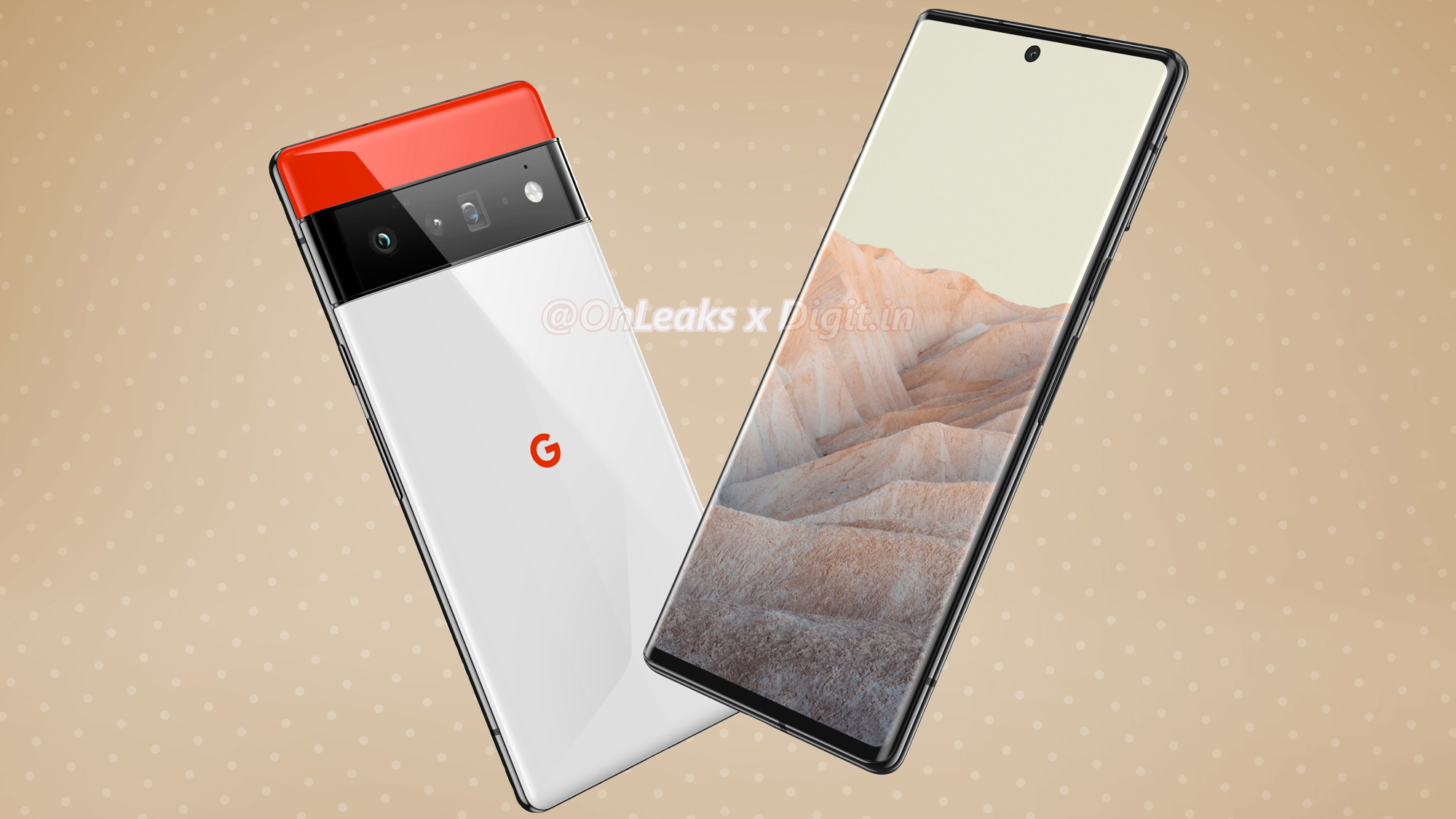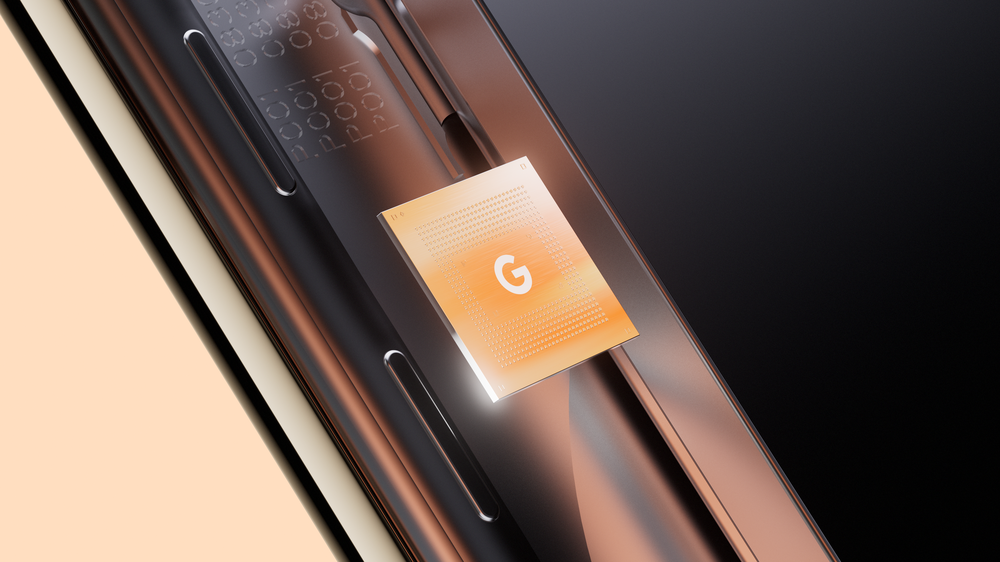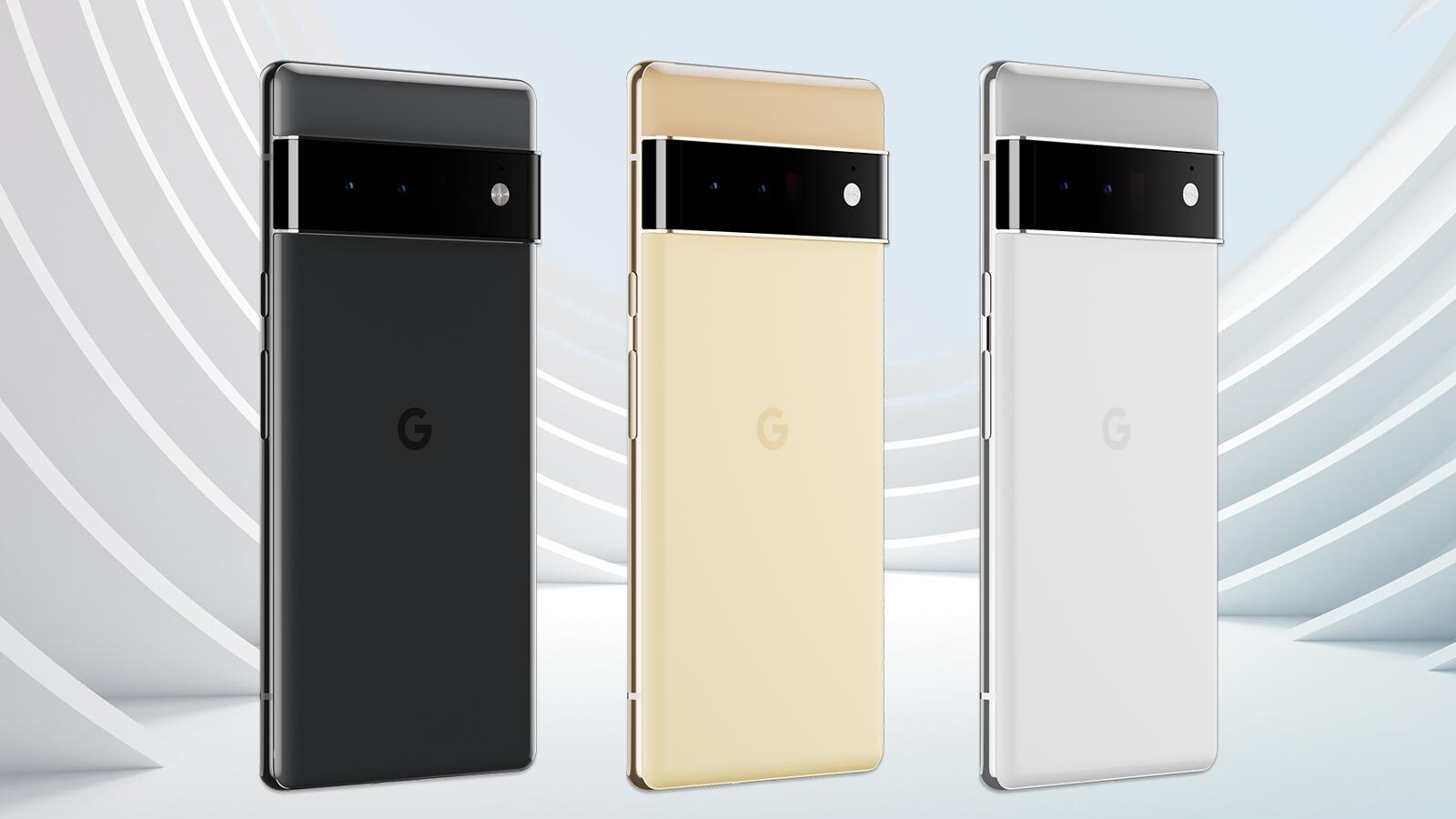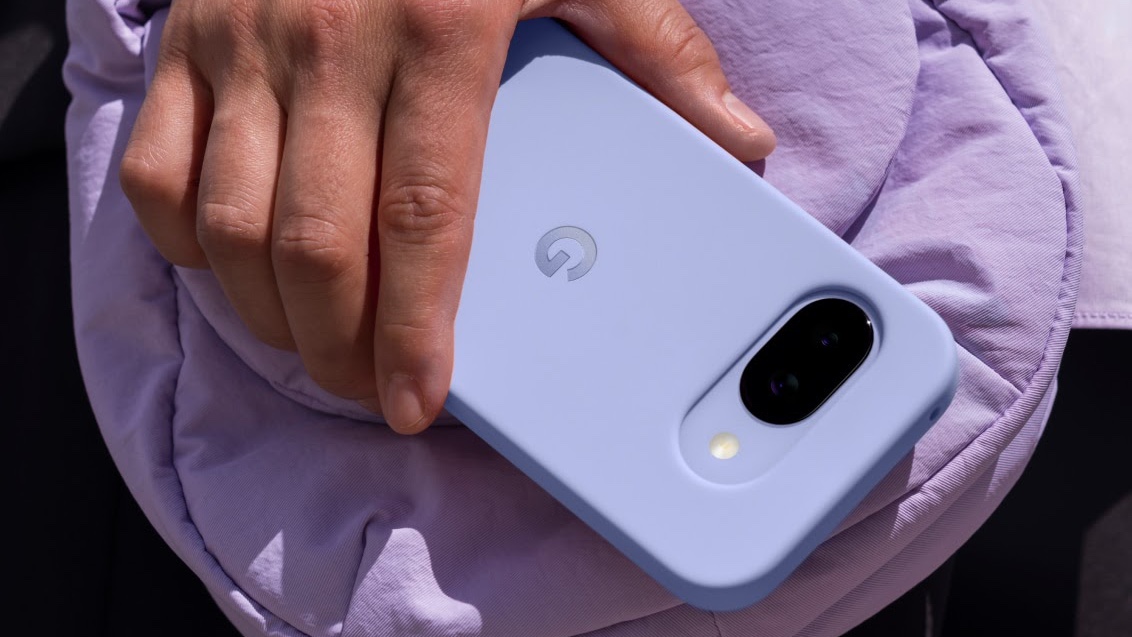Google reportedly boosts Pixel 6 production — and it could finally break through
It looks like Google is anticipating bigger Pixel 6 demand

The launch of the Google Pixel 6 is looming, and a new report indicates that Google is pretty excited about the prospects for its upcoming phone. But will phone buyers share that excitement?
Word of Google's optimistic outlook for the Pixel 6 comes from a report in Nikkei Asia, which contends that Google has asked its suppliers to boost production capacity for the new phone by 50% over the number of Pixel produced in 2019, the last full year before the COVID-19 pandemic.
- Pixel 6 vs. Pixel 6 Pro: These are the biggest differences
- Google Pixel 6 release date now tipped for October
- Plus: Novak Djokovic vs Kei Nishikori live stream info
That would be quite a bump for Google, as Nikkei Asia says that the company sold 7 million Pixels in 2019, its highest sales figure ever. (It's unclear if that 7 million refers to just the flagship Pixels or the A Series devices, which were launched in 2019 and proved to be very popular.)
Obviously, we won't be able to assess the Pixel 6's prospects until we get our hands on the phone, and the latest rumors about the Pixel 6's release suggest that's not happening until mid-October. Nevertheless, there are reasons to get excited about the new Google flagship phone — at least on paper.
Here's why Google might be anticipating big Pixel 6 sales — and why smartphone shoppers may be tempted to give the new phone a try.
It's all about Tensor
The most exciting feature surrounding the Pixel 6 is one that Google's already confirmed. The Pixel 6 will be powered by a Google-designed processor instead of the Qualcomm chipsets found in previous Pixels. Google's chip, named Tensor, is one of the most anticipated features ever for a Pixel phone, and it has the potential to put the Pixel 6 on the same competitive footing as both the iPhone and Samsung's Galaxy S flagships.

Because Tensor is a newcomer to the processor world, there will be questions as to how its performance compares to the standards set by Qualcomm's 8 Series chipsets as well as the pace-setting performance delivered by Apple's A Series chips. We're specifically interested to see how Tensor measures up to the Snapdragon 888 that's powered some of the best Android phones in 2021, as well as the A15 Bionic, which is all but certain to debut with the iPhone 13 this month.
Sign up to get the BEST of Tom's Guide direct to your inbox.
Get instant access to breaking news, the hottest reviews, great deals and helpful tips.
The real story with Tensor, though, comes from its name, which is shared with the hardware in Google's data centers. That's because Tensor's real strength comes with the boost to on-device artificial intelligence and machine learning that it figures to bring to the Pixel 6.
We're eager to see what this super-charged AI means in terms of everyday experiences. Obviously, computational photography — already a strength of Google's — figures to get a big enhancement from Tensor. But we also could see enhancements to on-the-fly translation and transcription, better video effects and more relevant app suggestions. The burden will be on Google to explain the benefits Tensor brings to the Pixel 6, and whether it succeeds or not will go a long way to determining just how excited consumers should be about this shift to a new processor.
An extra lens on the Pixel 6 Pro
Speaking of photography, Google has never really put an emphasis on camera hardware, preferring to let its AI-powered processing software do the heavy lifting. It's hard to knock that strategy — both the Pixel flagships and lower-cost models like the new Pixel 5a routinely rank among the best camera phones.

But Google's competitors keep adding lenses, and Pixel 6 rumors suggest that Google is finally ready to follow suit, at least on one of the upcoming models. The Pixel 6 Pro — the larger of the two upcoming phones — is adding a folded telephoto lens capable of a 4x optical zoom. That camera joins an entirely new main sensor that lets in 150% more light plus an ultrawide angle shooter.
AI-powered computational photography will still be the star of the show — see all that stuff earlier about Tensor — but the addition of a telephoto lens suggests that Google is serious about keeping up with the other top camera phones, particularly the Galaxy S21 Ultra and its powerful zoom capabilities.
Better battery life
It's been a while since one of Google's phones landed on our best phone battery life list, with the Pixel 5 producing below-average numbers on our battery test. Improved battery life is clearly much on Google's mind after it equipped the Pixel 5a with the biggest battery found in any of its phones — a trend we expect to continue with the Pixel 6.
Rumors suggest that the standard Pixel 6 will have a 4,614 mAh battery. That's not as big as the Pixel 5a's 4,680 mAh power pack, but it's close enough, considering both phones will likely feature similarly sized screens. The Pixel 6 Pro, which is expected to sport a larger 6.71-inch display, should get a 5,000 mAh battery, according to rumors.
Those bigger battery sizes may not translate to longer battery life for the new Pixel models. But it gives the Pixel 6 a fighting chance to outlast Google's current flagship.
Price
Here's the wildcard for the Pixel 6, as Google has always tried to price its phones a little bit below what Apple and Samsung charge for their flagships. In the case of the Pixel 5, Google actually scaled back some specs to keep the starting price down to $699, though the subdued performance likely dimmed enthusiasm for that phone.
It's unclear what Google plans to charge for the Pixel 6 and Pixel 6 Pro, and we wouldn't expect to find out prior to the likely October launch for either model. If Google can keep the standard model's price in the neighborhood of the Pixel 5, though, that's likely to fuel as much excitement among smartphone buyers as the Tensor chipset that has tongues wagging now.
Philip Michaels is a Managing Editor at Tom's Guide. He's been covering personal technology since 1999 and was in the building when Steve Jobs showed off the iPhone for the first time. He's been evaluating smartphones since that first iPhone debuted in 2007, and he's been following phone carriers and smartphone plans since 2015. He has strong opinions about Apple, the Oakland Athletics, old movies and proper butchery techniques. Follow him at @PhilipMichaels.

